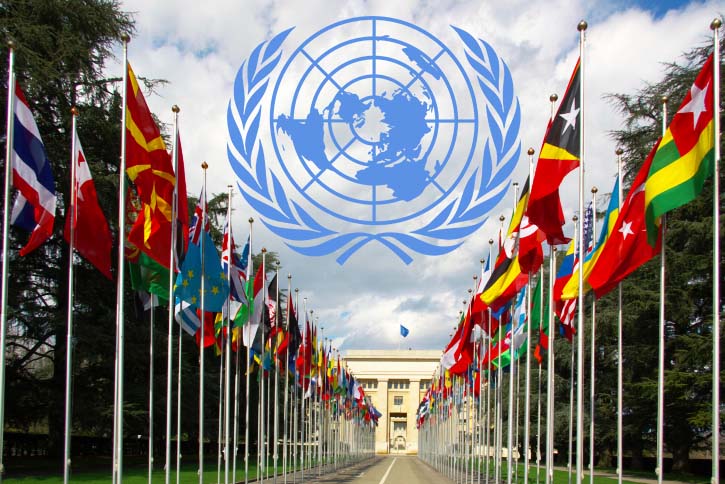Picks of the Week: The World Still Needs the United Nations
Russian Ships Near Data Cables Are Too Close for U.S. Comfort | New York Times
Intelligence Community Assessment: Global Food Security | Office of the Director of National Intelligence
Angry China Shadows U.S. Warship Near Man-Made Islands | Reuters
This week, the world could have marked with great fanfare the 70th birthday of the United Nations—the world body created by the victors of the Second World War to provide an institution committed to resolving international disputes peacefully. The creators of the UN believed deeply that if there was ever a third world war, the advent of nuclear weapons meant there would certainly not be a fourth.
The fact that the world made little note of the 70th anniversary of the UN probably shouldn’t surprise us. Criticizing the UN is easy and praising it can prove politically perilous. But the lack of celebrations worthy of the milestone should disappoint us because the motives of the founders have never been more relevant. Globalization has exposed the hyper-connectivity of the world and the fact that the big challenges faced by humanity will never be addressed by any one nation. They can only be solved by the community of nations acting in concert. The UN will be vital to these efforts, whether they are focused on poverty, hunger, extremism, or climate change.
But it’s not just global issues that call out for the UN. In the past week, great power politics, with a distinctive twentieth century flare, reemerged. Russian submarines were detected operating near the undersea cables connecting high-speed Internet between North America and Europe. The Obama administration, finally yielding to calls for a more assertive response to Chinese island building in the South China Sea, dispatched a U.S. Navy destroyer, the USS Lassen, to assert freedom of navigation. China warned that it would respond at a time and place of its own choosing.
The United Nations is not without its problems: corruption, abuses by its peacekeepers, a Security Council that more closely reflects the power-dynamics of 1945 than 2015. Ultimately, the UN only works when there is great power consensus on an issue. And in the last decade, the divergence of superpower interests has been increasingly profound.
The UN might not work as originally intended, but we need it to work to meet the global challenges of the new century—and the lingering behavior of the last. – Executive Director Jim Ludes

